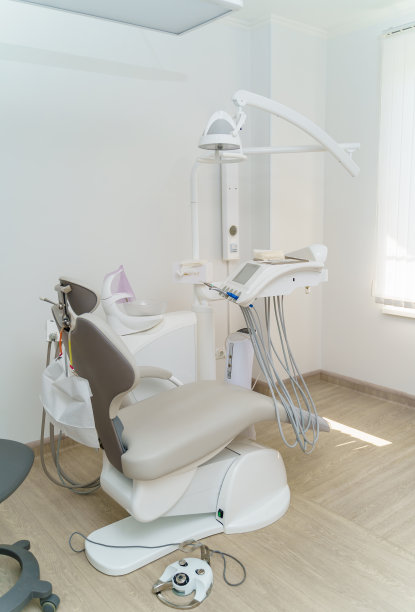Summary: Periodontal disease, commonly known as gum disease, is a widespread condition that affects oral health and overall well-being. This article delves into the causes of periodontal disease, its symptoms, and how it impacts overall health. By understanding these aspects, individuals can formulate a comprehensive oral care strategy. Proper dental hygiene and awareness can help in preventing periodontal disease and ensuring long-term health. The article aims to provide enlightening insights that empower readers to take proactive steps in their oral care regimen.
1. Understanding the Causes of Periodontal Disease

Periodontal disease primarily originates from plaque buildup—a sticky film of bacteria that forms on teeth. When plaque is not removed through regular brushing and flossing, it can harden into tartar, leading to inflammation of the gums, a condition known as gingivitis. If left untreated, gingivitis can progress to more severe forms of periodontal disease, characterized by the destruction of the supporting structures of the teeth.
Other contributing factors include smoking, which impairs blood flow to the gums and hinders healing. Additionally, certain medical conditions, such as diabetes and autoimmune diseases, can exacerbate the risk of periodontal issues. Hormonal changes in women, such as those during pregnancy or menopause, may also increase susceptibility to gum disease.
Diet plays a significant role as well. A diet high in sugars and low in nutrients contributes to the growth of harmful bacteria in the mouth. Understanding and addressing these underlying causes is crucial for effective prevention and management of periodontal disease.
2. Recognizing the Symptoms of Periodontal Disease
Recognizing the symptoms of periodontal disease is vital for early intervention. Common signs include swollen, red, or bleeding gums, especially when brushing or flossing. Bad breath that persists, even after brushing, is another warning sign indicating potential gum issues.
As the disease progresses, individuals may experience gum recession, leading to the exposure of the roots of teeth. This can result in increased tooth sensitivity and pain. Loose teeth, changes in bite or spacing between teeth, and the presence of pus around the gums are severe symptoms that demand immediate dental attention.
Being aware of these symptoms can facilitate timely visits to a dental care professional and help in taking preventive measures to maintain oral health. Regular dental check-ups play an essential role in detecting these issues before they escalate.
3. The Impact of Periodontal Disease on Overall Health
The ramifications of periodontal disease extend far beyond oral health. Research has established a connection between gum disease and systemic conditions such as heart disease and stroke. The bacteria from infected gums can enter the bloodstream, potentially leading to inflammation and clot formation in arteries.
Furthermore, periodontal disease has been linked to diabetes, with studies showing it can complicate diabetes management and raise blood sugar levels. The relationship between these two conditions creates a challenging cycle, as diabetes can exacerbate gum problems while periodontal disease can hinder optimal diabetes control.
Other health implications include respiratory issues. Inhalation of bacteria from the mouth can cause respiratory infections and worsen chronic conditions such as COPD. Therefore, maintaining healthy gums is not merely a dental issue but a crucial component of overall health and well-being.
4. Strategies for Effective Oral Care
To maintain optimal oral health, a consistent oral care strategy is imperative. This includes daily brushing with fluoride toothpaste, regular flossing, and using an antibacterial mouthwash. These practices help reduce plaque buildup and maintain healthy gums.
Regular dental visits are essential for professional cleanings and examinations. Dental professionals can identify early signs of periodontal disease and provide personalized care strategies. Early intervention can lead to more effective treatment options and better outcomes.
A balanced diet rich in fruits, vegetables, and lean proteins supports gum health. Nutritional awareness is also vital; individuals should limit sugar intake and avoid tobacco products, which can aggravate gum issues. Implementing these strategies collectively contributes to a healthier mouth and, subsequently, a healthier body.
Summary:
Understanding periodontal disease—its causes, symptoms, and effects on overall health—is foundational for developing a successful oral care strategy. By prioritizing good dental hygiene, recognizing early symptoms, and making informed lifestyle choices, individuals can effectively manage and prevent this condition. Proactive oral health care not only fosters a vibrant smile but also enhances overall wellness.
This article is compiled by Vickong Dental and the content is for reference only.
Vickong Dental
Vickong Dental is a large medical group established in Hong Kong in 2008 by professors from well-known medical universities in Guangdong and Hong Kong, as well as medical doctors from key national '985' universities (including Master's supervisors and senior professors). The chain of branches brings together expert dentists with PhDs and Master's degrees from Hong Kong and Mainland China, committed to providing high-quality dental treatment.
"Vickong Dental Practices the University Motto of 'Healing and Serving Society,' with a Stable Operation for Sixteen Years. It Has Been honored with Hong Kong Enterprise Leaders's Choice,' and is a Global Trusted Implant Center for the Nobel Implant System. Recommended by Hong Kong Metro Broadcast and Guangdong Television, it Serves Customers from Over Thirty Countries and Regions, Gaining the Trust and Favor of Citizens from the Guangdong-Hong Kong-Macau Greater Bay Area and Surrounding Cities.

Thousands of customers' unanimous praise
The most recognized and highly recommended dental service by customers in the Guangdong-Hong Kong-Macau Greater Bay Area
We Ensure You Receive Detailed Care and Attention Here
Hong Kong standards, Shenzhen prices, Your Trusted English-speaking dentists

Vickong Dental Medical-Grade Instrument Disinfection Process
Vickong Dental Medical-Grade Instrument Disinfection Process

Vickong Dental Chain: A Warm and Comfortable Environment for Treatment






Appointment Hours

Q&A
Why choose Vickong Dental?
Vickong Dental practices the university motto 「Medicine to Benefit Society」, with each branch bringing together highly qualified dentists with doctoral and master’s degrees from Hong Kong and the Mainland, and has maintained seventeen years of steady operation。Recipient of 「2024 Hong Kong Enterprise Leaders Brand」, 「2025 Hong Kong Enterprise Leaders Brand」, a Nobel Biocare Global Trusted Implant Center, and a brand recommended by Metro Radio Hong Kong and Guangdong TV。
To date, we have served customers from more than thirty countries and regions,earning exceptionally high word-of-mouth recognition and trusted recommendations from residents across the Guangdong-Hong Kong-Macao Greater Bay Area and surrounding cities
We have eight major branches in Zhuhai、Shenzhen,and a consultation and service assurance center in Hong Kong,so you can book a free consultation at any time for any questions,which is very reassuring.
If I do not accept the quotation after the CT scan, will I be charged??
No! As long as the actual treatment has not started, you will not be charged any fees.
Will there be any additional charges during the treatment process?
No, there won’t be any additional charges. Before treatment begins, we will clearly explain the treatment plan and its corresponding fees. Only after the patient agrees and signs the consent form will we proceed with the dental service.
Can I pay in Hong Kong dollars?
Yes. Vickong Dental accepts payment in Hong Kong dollars. The amount will be converted based on the exchange rate of the day, and the applicable rate will be clearly communicated to you in advance.
Can I reschedule my appointment at any time?
Yes. Please contact us via **WeChat** or **WhatsApp** as early as possible, providing your original appointment time and details, along with your preferred new date and time slot for rescheduling.













